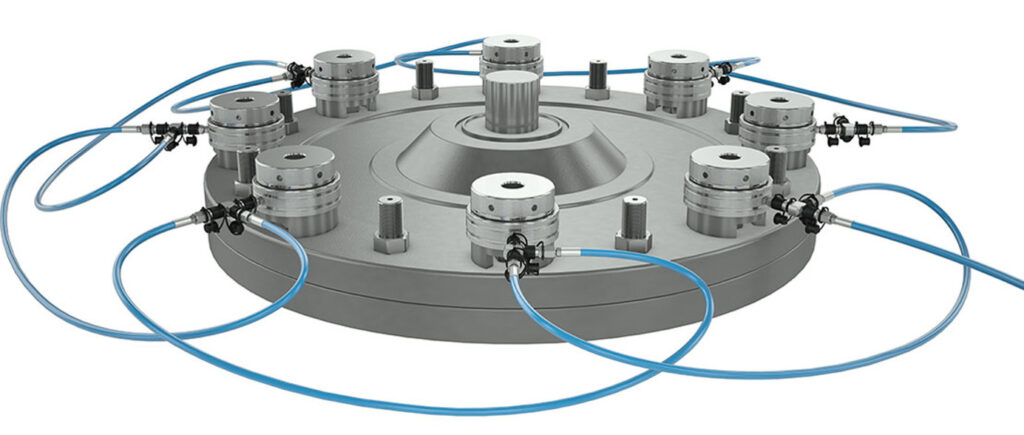Hydraulic bolt tensioners are advanced tools designed to provide accurate and reliable tightening of bolts in various applications. Whether in industries such as construction, manufacturing, or energy, these tensioners offer a superior method for achieving proper bolt preload. This article explores the working principle, types, advantages, limitations, and best practices associated with hydraulic bolt tensioners.
Basic Components of Hydraulic Bolt Tensioners
A hydraulic bolt tensioner consists of several key components. The hydraulic cylinder houses the tensioner piston, which generates the required force for tensioning the bolt. A hydraulic pump is used to provide the hydraulic pressure, and hydraulic hoses connect the tensioner to the pump. Finally, a tensioning nut is used to apply the tensioning force to the bolt.
Working Principle of Hydraulic Bolt Tensioners
The primary goal of hydraulic bolt tensioners is to achieve accurate bolt preload. The tensioning process involves the application of hydraulic pressure, which generates a controlled force through the tensioner piston. This force is transferred to the tensioning nut, which then applies tension to the bolt. By properly tensioning the bolt, the desired preload is achieved, ensuring optimal bolted joint integrity.
Types of Hydraulic Bolt Tensioners
There are different types of hydraulic bolt tensioners available to suit specific applications. Single-acting tensioners utilize hydraulic pressure to apply tension in one direction, while double-acting tensioners can apply and release tension in both directions. Low-profile tensioners are designed for use in confined spaces or areas with limited clearance. Each type offers unique advantages based on the specific requirements of the bolted joint.If you are looking for Hydraulic Bolt Tensioners, you can visit the TorcStark website.
Advantages and Benefits of Hydraulic Bolt Tensioners
Hydraulic bolt tensioners offer several advantages over traditional bolt tightening methods. One of the key benefits is the ability to achieve uniform and precise tensioning, ensuring even distribution of load across the bolted joint. The high level of accuracy and reliability provided by hydraulic tensioners minimizes the risk of bolt failure due to inadequate preload. Additionally, these tensioners save time and labor by simplifying and expediting the tightening process.
Limitations and Considerations
While hydraulic bolt tensioners offer significant advantages, they also have limitations that need to be considered. Proper setup and calibration are crucial to ensure accurate tensioning. Additionally, compatibility with different bolt sizes and specific applications should be evaluated before selecting the appropriate tensioner. Regular maintenance and inspection are necessary to keep the tensioners in optimal working condition.
Best Practices for Using Hydraulic Bolt Tensioners
To maximize the benefits of hydraulic bolt tensioners, certain best practices should be followed. This includes selecting the right tensioner type and size for the specific bolted joint, ensuring correct installation and positioning, and monitoring and controlling tension levels throughout the tightening process. Post-tensioning verification is also recommended to confirm that the desired preload has been achieved.
Popular Brands and Models of Hydraulic Bolt Tensioners
Several reputable brands offer high-quality hydraulic bolt tensioners. Brand 1 offers models such as Model A and Model B, known for their durability and performance. Brand 2 offers models like Model C and Model D, which are recognized for their precision and reliability.
Conclusion
Hydraulic bolt tensioners have revolutionized the process of bolt tightening by providing efficient and precise tensioning. With their ability to achieve uniform preload, increased accuracy, and time savings, hydraulic tensioners are essential tools in industries that rely on secure bolted connections. Understanding the working principles, types, advantages, limitations, and best practices associated with hydraulic bolt tensioners enables professionals to make informed

